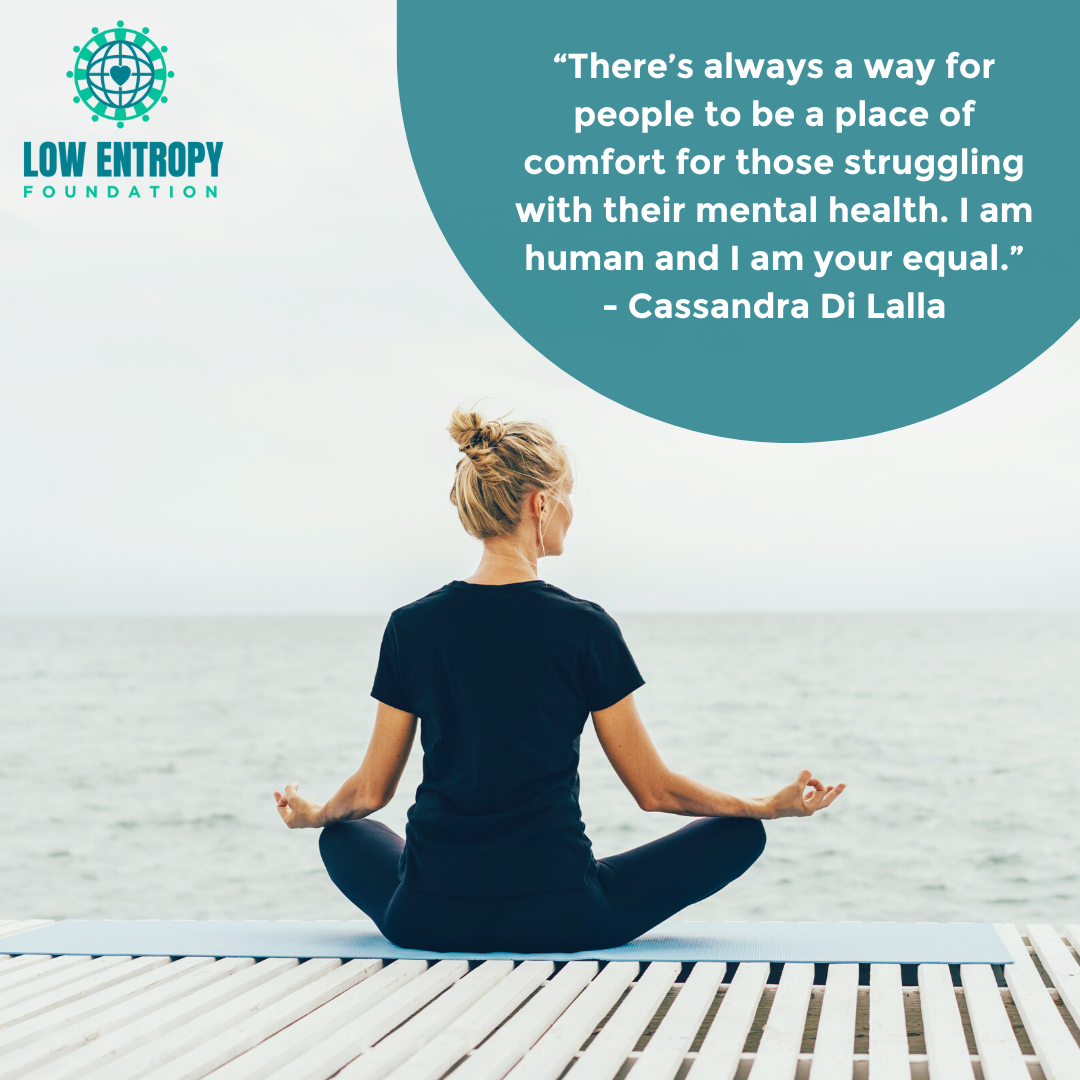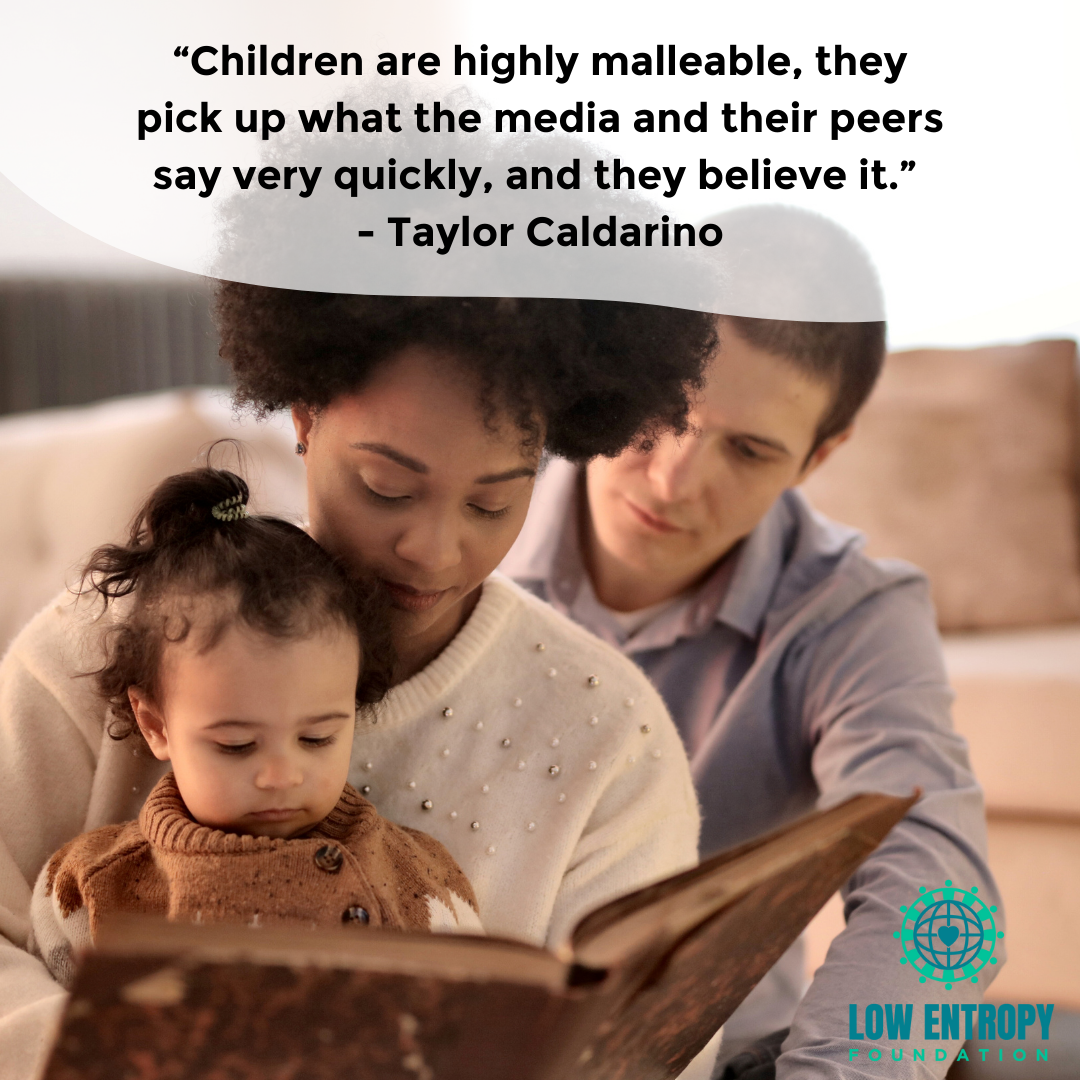Cassandra Di Lalla, Low Entropy Volunteer Writer
Mental health as a whole is one of those things where uncertainty is okay because mental health is a non-linear element in life and it can go in any direction, not based on wants or needs, but based on situations, feelings, events and unfortunately tragedies.
Mental health knows no boundaries and mental health does not discriminate. The wellness of our minds is sometimes, though more often than not, completely out of our control. We might give anything a go just because we are so desperate to keep ourselves mentally well, but unfortunately, it doesn’t work that way because some mental illnesses feel like big bullies and are always finding ways and reasons to attack us when we’re already feeling low.
Sadly, mental health is often frowned upon, still…to this day, and we’re almost in 2023. For those who struggle with such issues, it is so complex and not just “sadness” or “anger” creeping up on us but much more than that and a lot harder to endure. We go through so many challenges in life wondering why whoever is above us is testing us like this.
When people do not take the time to educate themselves or those who do not wish to learn about the constant struggles relating to mental health, it really makes us feel as though we’re total outcasts. Groups that struggle with their mental health are already marginalized enough because there are so many people in the world that turn the other way when mental health is involved or if a person with a disability is thrown into the mix (and yes, mental health does fall into that category).
The world’s views on mental health are completely upside down, so, I guess you can say that the world’s views are still “under construction”.
Have you ever heard of people saying that we’re attention seekers, we’re manipulative, we’re psycho, we’re delusional, etc.? Yes, so have I…on several occasions. And you know what? That’s not okay. What IS okay is to not feel okay all the time. That’s perfectly normal…for any human being on the face of this earth.
Here are a few ways in which you can help myself and our marginalized community:
- Accept us for the good, the bad, and the ugly (oh, and sometimes the unknown)
Yes, that statement sounds like something that would typically be in a wedding vow and that’s okay but, mental health as a whole often takes you for a ride. They’re not always joyrides and sometimes these rides will first require an entrance or admission fee to the amusement park (equivalent to accepting the fact that you’ve been diagnosed with a mental illness) followed by waiting in line for a ride (which is having to find professional help such as a therapist) and then once you’re on the ride, there are bumps, twists and turns, it’s shaky and it throws you in the air making you feel like the ride will fall off the tracks (and that’s the stage where you are having to deal with all of these emotions and feelings…the most challenging part of mental illness).
- Educate yourselves and practice patience
Imagine how we feel dealing with this everyday. Now, if you’re having a hard time understanding something or you’re unsure about a term used – please educate yourselves, ask questions, show compassion. Please have patience when it comes to learning and have patience with us as we try our hardest to navigate and explain our struggles freely though at times we find it easier to have things left unsaid or other times we wish that things were just left unread. There are moments when we feel as though it is less complicated if others didn’t know; however, we understand that our actions or our way of thinking would probably make much more sense if we took the time to share our story because then people would also truly see why we behave a certain way or why sometimes our bad days seem everlasting and our good days are so minimal. Patience should undeniably be a two-way street in this instance.
- Don’t fight us, tell us to calm down, or say things like “Get over it”
We are not trying to be hostile. We are not trying to instill fear in you. We are not trying to inflict emotional damage on you by unknowingly playing the guessing game. We are up and down with our emotions. We are unsure and sometimes uncomfortable. If we become agitated, angry, sad, scared, or anything in between – please do not fight us and tell us that it’s all in our head, that we need to calm down, and that we’ll “get over it”. Try the following instead: “We’ll be okay. We’ll figure things out. We’ll talk about it if and when you feel comfortable. We’ll explore healing. We’ll find our zen.” By using a positive and non-invasive approach, you are reassuring the individual that they’re in a safe and non-judgemental environment where they can seek help if they decide that’s the next step they want and need to take. Remember, it already takes heaps of courage for us to confront our demons and to accept the fact that these demons made an unwelcome visit because they’re confident that we’re the perfect person to fall victim to their wrongdoings. They knock at our doors at ungodly hours of the day, entering our life for a surprise stay…a couple hours, some days, a few months…my gosh, they’ve even extended their stay for as long as they feel suitable or until they find their new scapegoat.
- Be an advocate, spread awareness, fundraise/campaign
I mean, we’re just stating the obvious. But, you’d be surprised at how little mental health is actually talked about in this day and age – how nobody really wants to shed light on the wellness of your mind. Many workplaces still have the audacity to raise an eyebrow when we ask for a day off as a result of mental health. It’s quite sickening that having a single day to rest and recuperate psychologically is a problem to most employers/businesses. I’m not only tired but I am exhausted and sometimes I just don’t have the strength, willpower, or interest to wake up the next day and just be…just live. We have every right as an employee and as a human being to take a break. The need for “me” time and self-care. We have the right to put our health first. We have the right to be accommodated. We have the right to feel lost in our thoughts and feelings, and we definitely have the right to be heard on a universal level. So, SPEAK LOUDER and don’t ever be afraid to OPEN UP. Employers do not have the right to brush you under the rug or terminate you due to mental illness. Other human beings do not have the right to judge you based on your struggles.
You can be our voice if we sometimes fall short of our own expectations (or society’s expectations for that matter) and you can also be our voice when we feel we have no voice left from the constant rejection or redirection from others. You can be the support system that lacks in some places whether that be a corporate office, a retail store, an uncomfortable setting, etc. You can post/share mental health initiatives or even fundraise. There’s always a way to help even if you are only one person, because that’s one more lifeline than what we had before…one more person who can save a life, and one more person who can end the stigma. We can’t reverse the stigma or go back in time but we can lend our ears to listen, offer a shoulder to cry on, be static when our emotions are dynamic, and be the calm after the storm.
Honestly, the list of ways to help is exhaustive. There’s always a way for people to be a place of comfort for those struggling with their mental health. I am human and I am your equal. Nothing more, nothing less. Please be kind and don’t take for granted another beating heart. By saving them, you may have also been saved.
—
Cassandra Di Lalla lives life purposefully. She enjoys reading, writing and mental health initiatives. She’s an animal lover for life and an innovative individual always finding new ways to create.








